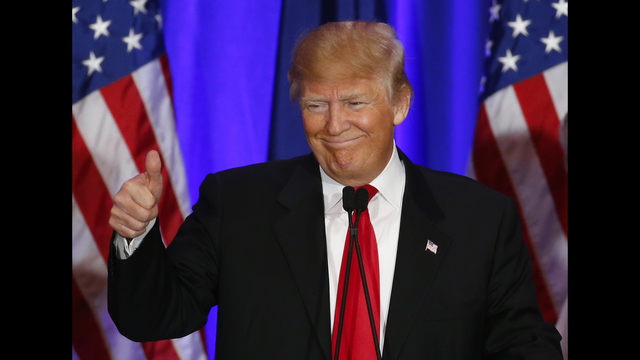But after sifting through databases, media reports, court documents, and other sources, Alex Nowrasteh, an immigration expert at the libertarian Cato Institute, has arrived at a striking finding: Nationals of the seven countries singled out by Trump have killed zero people in terrorist attacks on U.S. soil between 1975 and 2015.
Zero.
Six Iranians, six Sudanese, two Somalis, two Iraqis, and one Yemeni have been convicted of attempting or executing terrorist attacks on U.S. soil during that time period, according to Nowrasteh’s research. (Nowrasteh focused on plots against the U.S. homeland, which presumably Trump cares most about, rather than other terrorism-related offenses, like supporting a foreign terrorist group or trying to join a jihadist organization overseas.) Zero Libyans and zero Syrians have been convicted of doing the same. “Foreign-born terrorism is a hazard,” Nowrasteh argues, “but it is manageable given the huge economic benefits of immigration and the small costs of terrorism.”
As for refugees, Nowrasteh writes, Trump’s action “is a response to a phantom menace.” Over the last four decades, 20 out of 3.25 million refugees welcomed to the United States have been convicted of attempting or committing terrorism on U.S. soil, and only three Americans have been killed in attacks committed by refugees—all by Cuban refugees in the 1970s.
Zero Americans have been killed by Syrian refugees in a terrorist attack in the United States.
Between 1975 and 2015, the “annual chance of being murdered by somebody other than a foreign-born terrorist was 252.9 times greater than the chance of dying in a terrorist attack committed by a foreign-born terrorist,” according to Nowrasteh.
Of course, vetting refugees isn’t perfect. No such perfect system will ever exist. But, existing vetting is already very comprehensive.
From Politifact:
Comey, while talking specifically about Syrian refugees and not all of the Middle East, has repeatedly said that admitting refugees has its challenges and that information gaps do exist. But he also has expressed confidence in the admission procedure and says it continues to improve. That makes it hard to argue Comey feels like the government’s process “cannot properly vet people.”
From Gongwer (which is locked behind a paywall)
“This round of tests, like the last one, clearly indicates no evidence for systematic fraud, tampering, or hacking of voting machines,” AEG CEO Patrick Anderson said. “Furthermore, it demonstrates that both high and low immigrant-population counties did not vote in the manner suggested by the allegation of ‘3-5 million illegals’ voting for the Democratic Party candidate in 2016.”
From The Intercept, The FBI has Quietly Investigated White Supremacist Infiltration of Law Enforcement. This is a long article but worth the read. It should make us all question why we’ve singled out brown people while white people appear to be the tangible threat to our safety.
Also, there’s this:
“This election, for white supremacists, was a signal that ‘We’re on the right track,’” said Simi. “I have never seen anything like it among white supremacists, where they express this feeling of triumph and jubilee. They are just elated about the idea that they feel like they have somebody in the White House who gets it.”
From the New York Times, an appeal to President Trump to reconsider “President Bannon:”
In that new order, issued on Saturday, Mr. Trump took the unprecedented step of naming Mr. Bannon to the National Security Council, along with the secretaries of state and defense and certain other top officials. President George W. Bush’s last chief of staff, Joshua Bolten, was so concerned about separating politics from national security that he barred Mr. Rove, Mr. Bush’s political adviser, from N.S.C. meetings. To the annoyance of experienced foreign policy aides, David Axelrod, President Barack Obama’s political adviser, sat in on some N.S.C. meetings, but he was not a permanent member of the council.
I’m from Holland, Michigan, and for all these reasons, Betsy DeVos scares the hell out of me:
Michigan now serves as one of the most prominent examples of what aggressive, DeVos-style school choice policies look like on the ground, especially when it comes to expanding charters. About 80 percent of the state’s charter schools are run by for-profit companies—a much higher share than anywhere else in the country—with little oversight from the state. In 2011, DeVos foughtagainst legislation to stop low-performing charter schools from expanding, and later she and her husband funded legislators who opposed a proposal to add new oversight for Detroit’s charters.
Detroit, in particular, provides a cautionary tale of what happens when the ideology of market-driven “school choice” trumps the focus on student outcomes. The city’s schools—where 83 percent of students are black and 74 percent are poor—have been in steady decline since charter schools started proliferating: Public school test scores in math and reading on the National Assessment of Educational Progress have remained the worst among large cities since 2009. In June, the New York Times published a scathing investigation of the city’s school district, which has the second-biggest share of students in charters in America. (New Orleans is No. 1.) Reporter Kate Zernike concluded that lax oversight by the state and insufficiently regulated growth—including too many agencies that are allowed to open new charter schools—contributed to a chaotic system marked by “lots of choice, with no good choice.”A 2015 study from Michigan State University’s Education Policy Center found that a high percentage of charter schools also had a devastating impact on the finances of poor Michigan school districts like Detroit. Researchers reported that, under the state’s school choice and finance laws, it was hard for districts to keep traditional public schools afloat when charters reached 20 percent or more of enrollment. While per-student public funding follows kids to charters or other districts, traditional public schools still have fixed costs to cover, like building expenses and faculty salaries. Charter growth also increased the share of special-needs students left behind in traditional public schools, and the extra costs for educating such students weren’t adequately reimbursed by the state.
…
Boote’s truck takes a sharp turn into the predominantly Latino section of town, with large Victorian cottages, fenceless yards, and mature trees. Most kids in this neighborhood go to public schools. In the two decades since school choice was implemented in Michigan, white student enrollment in Holland’s public schools has plummeted 60 percent, with a nearby charter school becoming their top destination, according to an investigation by the Ann Arbor-based Bridge Magazine. Latino students are now the face of the system, and 70 percent of all its students are poor, more than double the district’s poverty rate when school choice began. Bridge Magazine found a similar pattern across Michigan: White parents tended to use the choice system to move their kids into even whiter districts, while black parents gravitated to charter schools made up mostly of students of color. Meanwhile, the Holland Christian Schools are predominantly white.
Via Vox, let’s kick out legal immigrants who use public services, because we’re heartless bastards:
People who use any of those benefits and are in the US on visas would be subject to deportation. And the order would even require the person who sponsored an immigrant into the US to reimburse the federal government for any benefits the immigrant used.
This is draconian. It seeks to punish not only legal immigrants in the US and their families, but their US-citizen relatives. It’s a reflection of a worldview in which any benefit that an immigrant gets from the government is, in some way, a theft of American tax money — and punishes immigrants as thieves accordingly.

